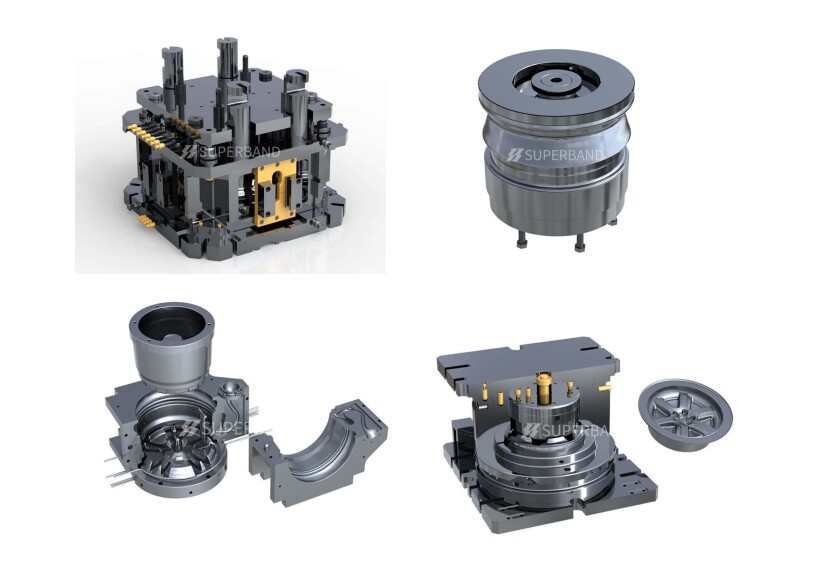2024-03-04
Automotive wheel molds play a crucial role in the manufacturing process of vehicle wheels. From design to production, these molds are integral in ensuring the quality and durability of wheels. However, many questions surround this vital component of automotive engineering. In this article, we address some frequently asked questions about automotive wheel molds, shedding light on their significance.
An automotive wheels mold is a specialized tool used in the manufacturing process of vehicle wheels. It is typically made of metal, such as steel or aluminum, and is precision-engineered to create the desired wheel design and specifications.

The mold dictates the shape, size, and features of the wheel, including the design of spokes, rim thickness, and overall aesthetics. It ensures consistency across multiple wheel units and allows manufacturers to produce wheels with precise dimensions and specifications.
Steel and aluminum are commonly used materials for automotive wheel molds due to their durability, heat resistance, and machinability. Some molds may incorporate specialized coatings or treatments to enhance durability and facilitate the release of the molded wheel.
The creation of a wheel mold involves intricate design and machining processes. Initially, engineers design the mold based on the desired wheel specifications using computer-aided design (CAD) software. Once the design is finalized, highly skilled machinists use CNC (Computer Numerical Control) machines to precisely carve the mold from a solid block of metal.
The durability of a wheel mold depends on several factors, including the quality of materials used, the precision of machining, and the maintenance practices employed. Proper cooling and ventilation during the molding process also play a crucial role in preventing heat-related damage to the mold.
The lifespan of a wheel mold varies depending on factors such as usage frequency, material quality, and maintenance. Generally, molds may last for thousands to tens of thousands of molding cycles before requiring replacement or refurbishment. Regular inspections and maintenance help prolong the lifespan of molds and ensure consistent quality in wheel production.
In many cases, worn or damaged wheel molds can be repaired or refurbished to extend their lifespan. Repairing may involve welding, machining, or coating application to restore the mold's functionality. However, extensive damage or wear may necessitate the replacement of certain components or the entire mold.
Proper maintenance of wheel molds is essential for ensuring consistent production quality and minimizing downtime. Regular cleaning, lubrication, and inspection help identify potential issues early and prevent costly production delays. Scheduled maintenance intervals should be established based on usage patterns and manufacturer recommendations.
Mold design directly influences the structural integrity and performance of the molded wheel. Factors such as spoke geometry, rim thickness, and material distribution affect the wheel's strength, weight, and handling characteristics. Well-designed molds can produce wheels that meet or exceed industry standards for safety and performance.
Automotive wheels come in various sizes, styles, and configurations, requiring molds to be adaptable and versatile. Manufacturers may use modular mold components or adjustable features to accommodate different wheel designs within the same mold. Customization options allow for the production of a wide range of wheel types while minimizing tooling costs and production lead times.
Automotive wheel molds are intricate components that play a vital role in the manufacturing of vehicle wheels. Understanding the fundamentals of wheel molds and addressing common questions surrounding their usage and maintenance is essential for ensuring quality and efficiency in wheel production processes. By delving into the intricacies of wheel molds, automotive manufacturers can optimize production workflows and deliver high-quality wheels that meet the demands of today's automotive market.
For more details about the automotive wheel molds please contact the automotive wheel mold manufacturer - Superband.